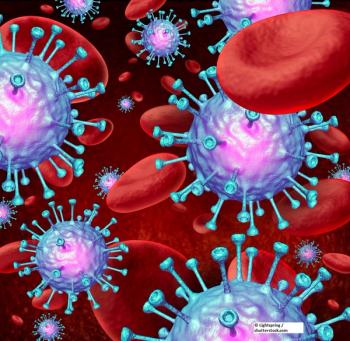
Can Doxorubicin Improve Outcomes with Sorafenib Therapy for HCC?
Previous laboratory research along with phase I and II trials suggested the combination of doxorubicin and sorafenib could offer improved outcomes in advanced hepatocellular cancer.
Adding doxorubicin to sorafenib failed to improve overall or progression-free survival over sorafenib alone in patients with advanced hepatocellular cancer (HCC). The study was halted early due to futility.
Previous laboratory research along with phase I and II trials suggested the combination of doxorubicin and sorafenib could offer improved outcomes in advanced HCC, according to study authors led by
The new study included a total of 356 patients, randomized to receive either the combination of doxorubicin and sorafenib (180 patients) or sorafenib alone (176 patients); the study was originally planned to include 480 patients, but it was stopped after a futility boundary was crossed at an interim analysis. Results of the study were published online ahead of print on September 5 in
Baseline demographics were well balanced between the study arms, with a median age of approximately 62 years; more than 85% of both groups were male, and approximately two-thirds of the cohort was white. Approximately 42% of both cohorts had locally advanced disease while 58% had metastatic HCC.
The median overall survival was 9.3 months with doxorubicin and sorafenib, compared with 9.4 months with sorafenib monotherapy, for a hazard ratio of 1.05 (95% CI, 0.83–1.31; P = 0.68). Progression-free survival was also no different, at 4.0 months with the combination and 3.7 months with monotherapy, for an HR of 0.93 (95% CI, 0.75–1.16; P = 0.54). Time to progression was also similar, at 4.7 months and 4.2 months, respectively (P = 0.49).
The combination was more toxic than sorafenib alone. Grade 3 or 4 neutropenia occurred in 36.8% of those treated with doxorubicin plus sorafenib, compared with only 0.6% of those treated with sorafenib alone. The same was true for grade 3 or 4 thrombocytopenia, which occurred in 17.5% of those receiving combination therapy and 2.4% of those receiving monotherapy. Grade 3 or 4 cardiac toxic events occurred only in those receiving doxorubicin and sorafenib, with five patients experiencing left ventricular systolic dysfunction (3.0%) and eight experiencing decreased ejection fraction rates (4.8%).
“The doxorubicin plus sorafenib combination can be added to a long list of phase II treatments in any cancer that were not sustained in phase III trials,” the authors wrote, though they noted that the data from this trial can still be of significant use. “They will help provide insights into a series of correlative research questions that are being studied that will provide data pertinent to patients with HCC.”
Among those questions are an evaluation of radiographic tumor necrosis and its association with treatment response, studies of hepatitis C viral load and its effect on therapy, and others.
“The study is timely considering the continued rising incidence of HCC in the United States and the critical need for better treatments for patients with advanced HCC,” the authors concluded.
Newsletter
Stay up to date on recent advances in the multidisciplinary approach to cancer.





































